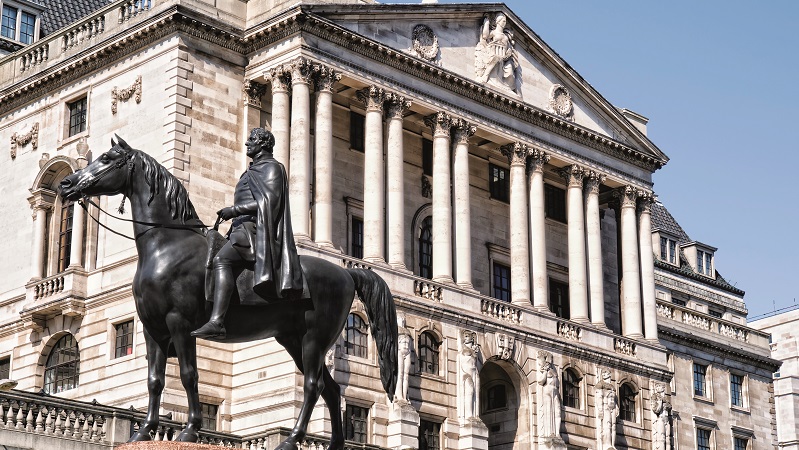The Bank of England has boosted its quantitative easing programme by purchasing more government bonds than expected, but the move has not surprised fund managers on the day the UK entered its second full lockdown.
The bank has increased its gilt purchases by £150bn to hit £895bn in total, but decided to avoid dipping rates into negative territory by keeping them at the record-low of 0.1%.
It left its corporate asset purchases untouched.
The added stimulus comes at a time when the domestic economy is facing the headwinds of rising Covid rates, a national lockdown and a still-uncertain outlook on Brexit.
The BoE also acknowledged that the second lockdown, which started on Thursday, will help push the economy into contraction in the fourth quarter by around 2%, to give an overall yearly contraction in 2020 of 11%.
The bank’s move came shortly before chancellor Rishi Sunak announced an extension to the furlough scheme for businesses and individuals to the end of March. The scheme will pay up to 80% of a person’s wage up to £2,500 a month.
Four weeks of lockdown and the Ghost of Brexit looming
Janus Henderson multi-asset portfolio manager Oliver Blackbourn said the BoE’s move was not unexpected given the range of risks the economy is facing.
“Another four-week period of tight restrictions and business closures is going to weigh heavily on growth, while concerns still abound that it could be extended into the crucial Christmas period,” he said.
“Furthermore, the ghost of Brexit past looms at year end, when an economic shock awaits, even if there is a basic trade deal agreed. The situation is not helped by the lack of clarity for businesses and employees coming from political leaders.”
Blackbourn said the bigger question for economists is about what impact a further large increase in quantitative easing can have on the real economy.
“The policy will provide a regular buyer of debt for government issuance at a time of increased spending, but it remains unclear how much the policy will filter through to the average person on the street, given the current restrictions.”
Negative rates and other assets remain a distinct possibility
RWC Diversified Returns fund manager Clark Fenton said it is likely the bank will be forced to implement negative rates.
He said: “In today’s topsy-turvy world, central banks refraining from pumping in further stimulus is now the equivalent of them hiking rates or withdrawing stimulus, so standing still is now the new tightening, and markets are reacting to it as such.
“Looking ahead, the BoE will likely be forced to go negative at some point in terms of rates, as the market has already done so, although Brexit will likely provide a convenient bit of cover for the policy change.”
AJ Bell financial analyst Latih Khalaf said the BoE is “beginning to run out of dry powder”, noting it now holds almost half the gilt market and interest rates are already close to zero.
“That means if the central bank wants to boost the economy further, it may resort to even more extraordinary measures than we have today,” he said.
“Negative interest rates are certainly on the table. The bank is seriously weighing this up and has written to bank chiefs to see if they can handle it. QE could also shift towards different assets, such as more corporate bonds, high yield bonds and even equities, as has happened in Japan.”










